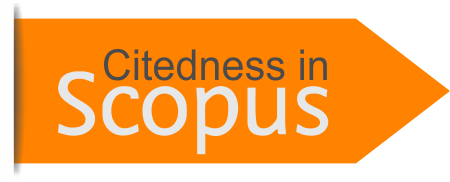STUDI KRITIS FEMINIST LEGAL THEORY MENURUT PERSPEKTIF ISLAMIC WORLDVIEW
Abstract
Abstract
The Draft Act of the Elimination of Sexual Violence (RUU PKS) was made as an effort to achieve equality and justice before the law. RUU PKS was intended to be proposed as a solution towards problems related to women and sexuality. Philosophically, there are three models of perspectives used as approach of the RUU PKS: standpoint, empiricism, and postmodernism. These three perspectives are inherent parts of the Feminist Legal Theory (FLT), which is also part of global legal discourse. However, a philosophical examination reveals that the epistemology of FLT has fundamental problems in defining reality and truth. The theoretical foundations of FLT is weak, therefore the RUU PKS will fail to achieve its purported goal: justice before the law. This article analyzes this issue critically and provide a solution from an Islamic worldview.
Intisari
Munculnya Rancangan Undang-Undang Penghapusan Kekerasan Seksual (RUU PKS) adalah salah satu upaya dalam mewujudkan kesetaraan dan keadilan hukum. RUU PKS sebagai tawaran hukum diharapkan mampu menyelesaikan problem dan isu-isu seksual perempuan. Secara filosofis, terdapat tiga model cara pandang yang digunakan dalam pendekatan hukum RUU PKS, yakni: Standpoint, Empirisme dan Postmodernisme. Tiga cara pandang ini mewujud dalam wacana hukum global yang disebut sebagai FLT. Namun jika dikaji secara filosofis, secara epistemologis FLT memiliki problem mendasar dalam memaknai realitas dan kebenaran. Hal itu dapat membuat bangunan teori FLT rapuh sehingga tujuan RUU PKS dalam mewujudkan keadilan hukum tidak sesuai dengan filosofi negara hukum Pancasila. Makalah ini akan lebih dalam mengkaji permasalahan tersebut secara kritis, dan juga menawarkan solusi yang tepat berdasarkan perspektif Islamic Worldview.
Authors who publish with this journal agree to the following terms:
- Authors retain copyright and grant the journal right of first publication with the work simultaneously licensed under a Creative Commons Attribution License that allows others to share the work with an acknowledgement of the work's authorship and initial publication in this journal.
- Authors are able to enter into separate, additional contractual arrangements for the non-exclusive distribution of the journal's published version of the work (e.g., post it to an institutional repository or publish it in a book), with an acknowledgement of its initial publication in this journal.
- Authors are permitted and encouraged to post their work online (e.g., in institutional repositories or on their website) prior to and during the submission process, as it can lead to productive exchanges, as well as earlier and greater citation of published work.





















